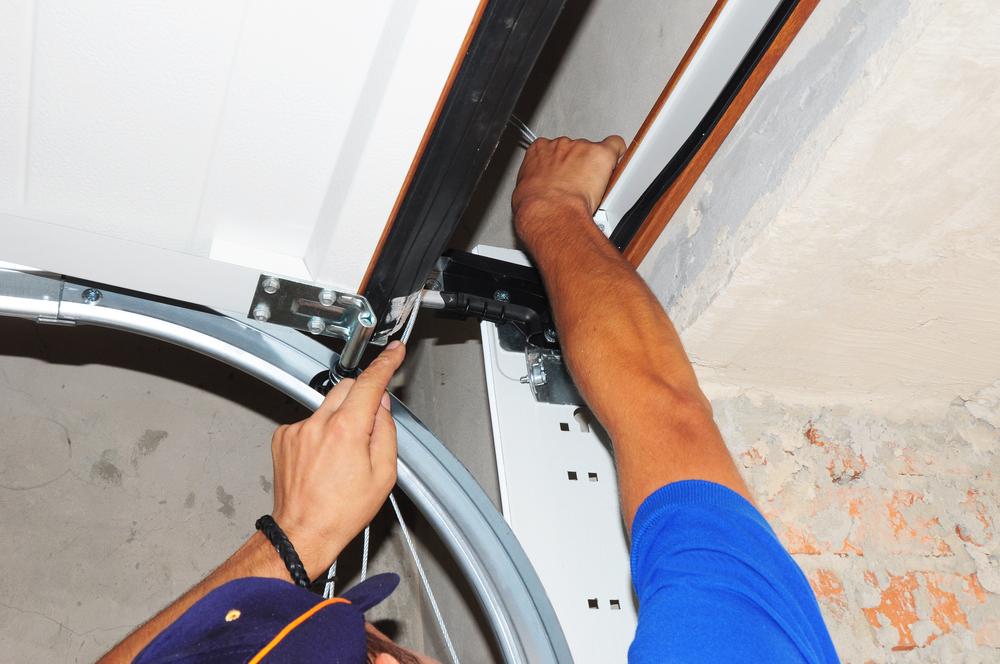Are you encountering issues with your garage door spring and seeking a DIY solution? Uncover the step-by-step guide on “How to Release Tension on Garage Door Spring” to ensure a safe and effective resolution. Empower yourself with the knowledge to address spring-related concerns and maintain the optimal functionality of your garage door.

Introduction: Understanding the Importance of Tension Release
A garage door spring plays a pivotal role in the smooth operation of your garage door. However, tension build-up can pose challenges, leading to issues with opening and closing. In this guide, we’ll explore the reasons behind tension build-up, the importance of releasing it, and the safe methods to undertake this crucial maintenance task.
Safely Releasing Tension on Garage Door Spring
The Significance of Proper Tension Release
Before delving into the how-to aspect, it’s crucial to understand why releasing tension on a garage door spring is essential. Proper tension ensures the balanced and controlled movement of the garage door. An uncontrolled release can pose safety risks and lead to damage to the door, the spring, or even personal injury. Therefore, following safe procedures is paramount.
Identifying Types of Garage Door Springs
Garage doors typically use two types of springs: torsion springs and extension springs. Understanding the type of spring your garage door utilizes is the first step in releasing tension safely. This section provides insights into the characteristics of each type, aiding you in determining the appropriate approach for tension release.
The Step-by-Step Guide: How To Release Tension On Garage Door Spring
Ensuring Safety Precautions
Safety should always be the top priority when working with garage door springs. This section outlines the necessary safety precautions, including wearing protective gear, ensuring a stable ladder or platform, and informing others about the maintenance task in progress.
Locating the Torsion Spring Cone or Extension Spring Cable
For torsion springs, finding the torsion spring cone is crucial, while for extension springs, locating the extension spring cable is essential. This step provides a detailed walkthrough on identifying these components, setting the stage for the tension release process.
Using the Correct Tools and Equipment
Having the right tools for the job is imperative. Learn about the specific tools required for releasing tension on garage door springs, including winding bars, pliers, and a sturdy ladder. This section emphasizes the importance of using proper equipment to ensure a safe and effective process.
Releasing Tension Gradually and Methodically
Whether dealing with a torsion spring or an extension spring, the tension release process involves gradual and methodical steps. This section provides a step-by-step guide for each type, emphasizing precision and caution throughout the process. Clear instructions and safety tips accompany each step to ensure a smooth tension release.
Common Challenges and Troubleshooting Tips
Dealing with Stuck or Jammed Springs
Occasionally, garage door springs may become stuck or jammed, complicating the tension release process. This section addresses common challenges and provides troubleshooting tips to overcome these issues. Whether facing resistance or encountering obstructions, learn how to navigate through potential obstacles safely.
Conclusion: Empowering Homeowners with Garage Door Knowledge
In conclusion, knowing “How to Release Tension on Garage Door Spring” is an essential skill for homeowners seeking to maintain their garage door’s functionality. By following the detailed guide and prioritizing safety, you can confidently address tension-related issues and ensure the longevity and proper operation of your garage door. Remember, when in doubt, consulting a professional is always a prudent choice for complex garage door spring tasks.



Leave a Reply